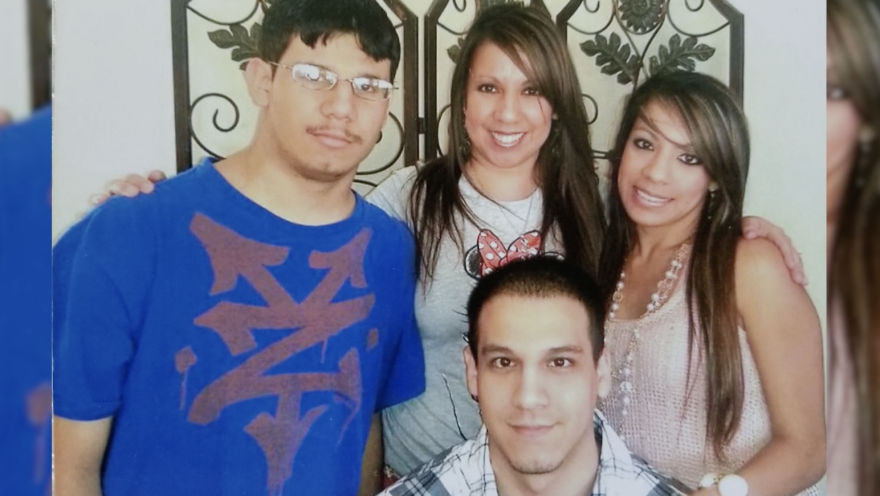Today on Beyond the Report, we meet Michelle Lewark who found herself isolated in an abusive relationship after running away with her boyfriend at 15. Eventually, her life was saved by the bite of a brown recluse spider. What started as a near-death experience, ended with a fresh start at life when she finally found the support she needed to leave her abuser for good.
Michelle recalls, “There was a financial account manager who was helping me with all my bills he gave me information on how to leave and said whenever you’re ready let me know.”
On average, victims of abuse will leave seven times before finally leaving their abuser for good. One of the reasons for this rate is a lack of support. “Had it not been for him,” Michelle says, “I don’t think that I would have left as soon as I did.”
Michelle went back to her husband after her hospital stay, but the man’s open invitation planted a seed. About a year later she finally left him.
According to Michelle, “Sometimes the only person that a victim of abuse will hear is going to be a police officer, it’s going to be a friend, it might be a coworker, and that judgement of that one person, can be all it takes for that victim to say I’m not going to leave, because everybody’s going to judge me like this.”
Detective Sadie Stevens works in the Domestic Violence Unit at the Lubbock Police Department. After working as a patrol officer for years, she noticed the ripple effect domestic violence has in a community. She wanted to help.
“It’s not just the two involved parties,” she says, “It’s the kids who are seeing mom and dad fight, or boyfriend and girlfriend fight. Sometimes it’s a community thing. We have a domestic violence task force here in Lubbock and I’m a member of that. I represent the Lubbock police department in joint meetings with many community partners such as women’s protective services, voice of hope and we’re able to disseminate information about other services.”
One of their main goals is to help connect victims with resources like women’s protective services and voice of hope. Steven Garcia, who we met in our first episode, works at Women’s Protective Services. He explains that they use an adapted version of Maslow’s hierarchy of needs—if you’ve never heard of it, it’s a motivational theory in psychology that lays out five human needs. You must satisfy the lower levels in order to progress to the top.
Garcia explains their method, “At the bottom of that triangle is basic human needs. To survive, every human needs safety, they need food, they need water,” he says. “So that’s what the shelter provides at its core, basic human needs. Then we move up the triangle and there’s so many different crises, so we’ve got to address each crises individually. So once we can sort of get to a stable place, then we can move up that triangle where we can work on healing and education. Through the counseling process.
When Michelle left her husband, like many of women we’ve heard from in throughout our episodes, she left with nothing. She hadn’t worked in the 13 years they were together. She didn’t have a driver’s license. She didn’t even have her GED. She was starting from ground zero.
She turned to resources like Women’s Protective Services and Legal Aid for help. “Through Women’s Protective and through the agencies that I was getting involved with, I found out about volunteer programs. And so I started volunteering at catholic family service, they taught me all of the office process. They taught me how to file, how to use a phone, how to type and it was so exhilarating to be able to learn something new like that.”
From there, the doors opened up to Michelle. She was eventually hired on part-time to help the counselors at night, which lead to a full-time job. Throughout her relationship, Michelle leaned on poetry and writing as a way to process what she was dealing with. Eventually she even wrote a book detailing her experiences.
Watch the full story on BeyondtheReportLBK.com.




